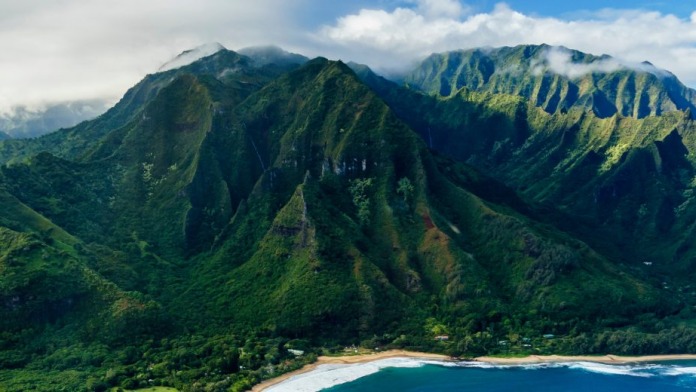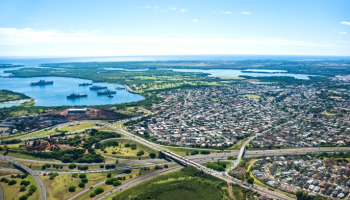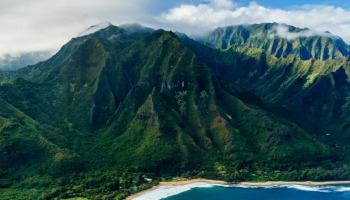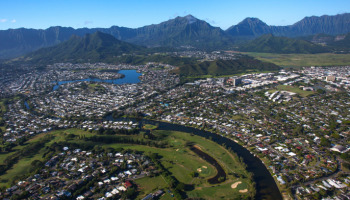Expert Insights
Many people with substance use disorder don’t appear to be compromised. They function well in society, are often successful in their careers, and are well respected. Many business professionals decline rehab treatment because of the stigma and loss of work time that rehab requires. But today, there are “executive rehabs” that cater to business professionals.
Executive rehabs offer greater confidentiality and provide amenities (office space/office machinery) that allow clients to continue managing some of their business responsibilities while in treatment. Such rehabs are needed because they make it possible for executives to access treatment solutions that work for them.
~ Rita Milios
How Much Does Drug Rehab Cost in Hawaii?
Hawaii is ranked 44th nationwide in terms of addiction treatment affordability, with an average cost of drug and alcohol rehab of $58,810 (without insurance).
- Medical detox is the most expensive, with an average cost of $144,988
- Long-term inpatient drug rehab in Hawaii costs an average of $51,896
- Outpatient addiction treatment in Hawaii costs an average of $8,623
- Outpatient methadone treatment is the most affordable, with an average cost of $7,662
The exact cost of addiction treatment in Hawaii depends on several factors, including:
The type of treatment program you need, i.e., inpatient vs. outpatient care
The types of features
The duration of treatment
Whether or not you have health insurance
Whether or not you’re eligible for special financing or government funding
Location
How to Pay for Drug Rehab in Hawaii
As of 2024, there were over 160 drug rehab facilities across the state of Hawaii. These facilities accept several payment methods. Of those treatment facilities, the following numbers reflect how many accept their respective payment methods:
Drug and alcohol addiction treatment is not a luxury. It is a necessity to experience sobriety and sustainable recovery. When paying for addiction treatment in Hawaii feels out of reach, consider the following payment options that can help make treatment accessible and sobriety achievable.
Private pay + insurance
One common way people pay for addiction treatment is through commercial health insurance policies. Most health insurance policies must cover mental health and substance use disorder treatment as mandated by two federal laws. These include the 2008 Mental Health Parity and Addiction Equity Act and the 2010 Affordable Care Act.
However, there are exceptions to these laws, so it is crucial to verify your insurance coverage and understand your potential out of pocket costs. Even with health insurance, some people opt for private pay or self-pay to reduce the potential that their employer will learn they require addiction care. These are some of the major commercial insurance providers that cover people in Hawaii.
- Hawaii Employer-Union Health Benefits Trust Fund
- Hawaii Management Alliance Association
- Hawaii Medical Service Association
- Humana
- Kaiser Foundation Health Plan, Inc.
- UnitedHealthcare Insurance Company
- University Health Alliance
Medicaid
Medicaid is a joint program between state and federal agencies that provides healthcare coverage for adults and children. You must meet several eligibility requirements including low income, state residency, citizenship, and a current social security card. Pregnant women and children and people who receive Supplemental Security Income are groups that meet mandatory eligibility. You can check your Medicaid eligibility through the Healthcare Insurance Marketplace.
Hawaii Medicaid also offers two medical assistance programs. The first is the state QUEST Integration, which provides Medicaid recipients with additional benefits based on their medical necessity and clinical criteria. The second is Medicaid Fee-For-Service in which providers are paid directly for their covered services. Eligibility for Medicaid Fee-For-Service is very similar to the Medicaid eligibility requirements.
Medicare
Medicare is a federal insurance program for which you must meet eligibility requirements – people over age 65, or certain younger people with certain disabilities or health conditions. The program helps pay for health care using Medicare Part A for inpatient and hospitalizations and Medicare Part B to pay for outpatient care including doctor’s visits and hospice care. Medicare Part C are premium based Medicare Advantage Plans that help manage care through original Parts A and B and Medicare Part D helps cover prescriptions, which may help cover opioid substitution programs like methadone treatment.
There are roughly 298,000 Hawaiian residents enrolled in Medicare and more than 53% have enrolled in Medicare Advantage plans. Residents also have access to several plans if they are eligible for Medicaid and Medicare – also called Dual Eligibility. These plans provide added benefits beyond original Medicare, such as transportation, coordinated care between Medicare and Medicaid, or a single care manager.
Military insurance
TRICARE is the healthcare plan for uniformed services personnel – both active and retired – and their families. Military personnel receive comprehensive coverage administered by the Defense Health Agency. TRICARE splits the U.S. into two regions – West and East. TRICARE West Region covers Hawaii and is managed by Health Net Federal Services. They offer treatment for substance abuse and mental health conditions in private settings and VA hospitals.
VA health care ensures veterans have access to primary care and specialists, including substance abuse and addiction treatment. Many veterans struggle with addiction to alcohol, street drugs, prescription medication, and tobacco. VA health care offers various services, including medically managed detox, drug substitution therapy, and inpatient and outpatient care.
Tribal funding and programs
There are no federally or state recognized tribes in Hawaii. The state recognizes Indigenous Polynesian people known as Native Hawaiians or Kānaka Maoli. A person is Hawaiian if they were born, grew up, and identify with the state’s culture, but that does not make them Polynesian or Pacific Islander.
There are several available state level resources to address substance use in Hawaii, including prevention and recovery programs, virtual meetings, and training. The Salvation Army operates a Hawaiian and Pacific Islands Division to address drug and alcohol rehabilitation. They provide free housing, counseling, food, and help with employment to help you get back on your feet.
Other low-cost options
Your insurance coverage and free addiction treatment centers help lower your out of pocket costs. Several other low-cost options can help reduce the financial burden of drug and alcohol rehab. Typically, the quickest way to receive care is a personal loan from the bank or friends and family. This allows you to start treatment immediately while you obtain funding from other sources. A loan from the bank gives you greater confidentiality, but friends and family usually charge less interest and offer more flexibility in the repayment plan.
You can explore several other options with the financial counselor at your treatment center of choice. These include a potential payment plan, sliding scale fees based on your income and ability to pay, and grants and scholarships from local organizations and the treatment center. Faith-based organizations are often nonprofit and may offer financial assistance to complete their program. Each of these can help reduce your out-of-pocket cost and make addiction treatment more accessible.
How to Find Low-Cost Rehab Centers in Hawaii
You don’t have to worry about not being able to afford Hawaii drug rehabs. While there are indefinite costs, like room and board, several options exist to meet your income level.
As of 2024, there were over 160 drug rehab facilities across the state of Hawaii. These facilities accept several payment methods. Of those treatment facilities, the following numbers reflect how many accept rehabs offer free or reduced-cost programs:
Low-cost and free facilities receive funding from both the federal and state government as well as local governments that receive funding from insurance programs like Medicaid, special grants, and even donations. This funding allows them to offer discounted or no-cost addiction treatment.
To receive free or low-cost drug and alcohol rehab in Hawaii, you’ll need to meet specific criteria, such as:
- You must be a U.S. citizen
- You must have proof of low income
- You must have proof of a lack of health insurance
- You must be a tax-paying resident in the state of Hawaii
Free Rehabs in Hawaii
Free and low cost drug and alcohol addiction treatment centers are available throughout Hawaii. They offer the services you need to find sobriety and sustainable recovery. Hawaii is considered the paradise of the Pacific with beautiful beaches and surprisingly good weather. But, when your life is impacted by drug and alcohol abuse, it’s difficult to enjoy the beauty that Hawaii has to offer.
Many people who need addiction treatment and drug rehab also struggle with the financial obligation that comes along with it. Several factors can influence your ability to pay for addiction treatment, including poverty, homelessness, lack of employment, lack of insurance, and the stigma that surrounds addiction.
Low cost and free alcohol rehab and drug addiction treatment help to overcome each of these factors. When you’re looking for help to break free from dependency on drugs or alcohol, worrying about cost should not be what stops you. Nonprofit treatment centers are often supported by donations and still take insurance coverage. This can reduce your obligation to meet deductibles, copays, and coinsurance. Other centers may offer sliding scale fees or payment plans to make treatment more accessible.
Free Addiction Treatment Resources in Hawaii
Coalition For A Drug-Free Hawaii (CDFH)
The organization’s mission is to reduce and prevent drug abuse in Hawaii using education and awareness. They serve the state’s children and families through programs that strengthen the community’s resilience against substance abuse. The Hawaii Prevention Resource Center is the state’s center for prevention and treatment materials and programs.
Bobby Benson Center
The center offers residential treatment for substance abuse to adolescents aged 13 to 17 years and outpatient services to adolescents aged 13 to 17 and adults 18 years and older. While they accept insurance, they also have a contract to provide substance use treatment to youth who are part of the Child and Adolescent Mental Health Division.
Hawaii CARES
The organization helps connect individuals to services that treat mental health conditions and substance use disorders. They are dedicated to treatment, and serving individuals in the criminal justice system, homeless individuals, adolescents, and adults. They provide a 24/7 crisis hotline, substance use treatment and recovery, and mental and emotional health.
Hawaii Office of Veterans’ Services
This is the primary state office responsible to develop and manage policies and programs. They are a liaison between the Governor’s office and veteran’s organizations throughout the state.
Family Promise of Hawaii
According to the organization, nearly one in 30 young children are homeless. They provide Hawaiian residents with holistic and compassionate care on the islands of Oahu and Maui. Resources include interim emergency housing, emergency rental assistance, and case management.
Does Hawaii Have a Drug and Alcohol Problem?
A 2020 survey conducted by the University of Hawaii Department of Psychiatry for the state’s health department has revealed the following facts and statistics about Hawaii’s youth population:1

The statewide ratio for middle and high school students with a substance use disorder is 1:10.

At 24.4%, gender-diverse middle and high school students are more likely to have a substance use disorder.
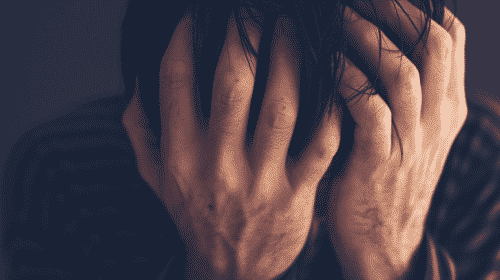
While 11% of students likely have a substance use disorder (SUD), an additional 14% were at risk of developing SUD.
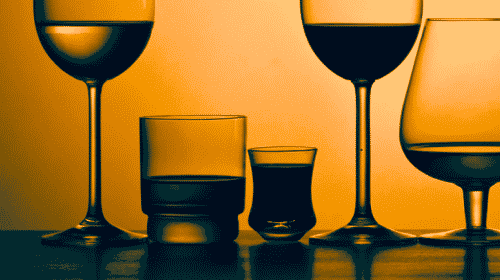
Most students in this age group reported drinking as early as eight years old, with use peaking between 13 and 15.
Drug Laws in Hawaii
DUI
Hawaii law prohibits people from operating a vehicle under the influence of alcohol or drugs. The legal blood alcohol content is 0.08%. When you obtain your license, you give implied consent to submit to chemical tests and field sobriety tests. The first DUI offense is a misdemeanor, which gets far more severe with subsequent arrests and convictions.
Marijuana/Cannabis Laws
Hawaii was the first state to legalize marijuana but recreational marijuana is not available for purchase and persons holding any amount more than 3 grams is a crime. You must have a 329 Medical Cannabis Card to purchase marijuana at a medical dispensary and are eligible only if you have a qualifying health condition.
The Opportunity Probation with Enforcement Program
This community program offers supervision for probationers who have a substance abuse condition and a long history of drug involvement with a high risk of failing probation. Probationers in the program call an automated phone number every morning and may be chosen for random drug testing. If they fail to call, fail to show up for testing, or test positive they lose probation and return to jail.
Good Samaritan Law
The law protects people who call 911 to prevent an overdose from becoming fatal and to offer assistance without fear that calling medical authorities will result in an arrest.
Resources
- Hawaii Department of Health (2020). Hawai’i Student Alcohol, Tobacco, and Other Drug Use (ATPD) Survey.
- FindTreatment.gov. (n.d.). FindTreatment.gov.
- U.S. Department of Health & Human Services (2021, November 10). Mental Health and Substance Use Insurance Help.
- SAMHSA (2021). Medication-Assisted Treatment (MAT).
- SAMHSA. (2021, June 8). Methadone.
- SAMHSA. (n.d.). Buprenorphine Treatment Practitioner Locator.
- SAMHSA. (2020, September 15). Naltrexone.

